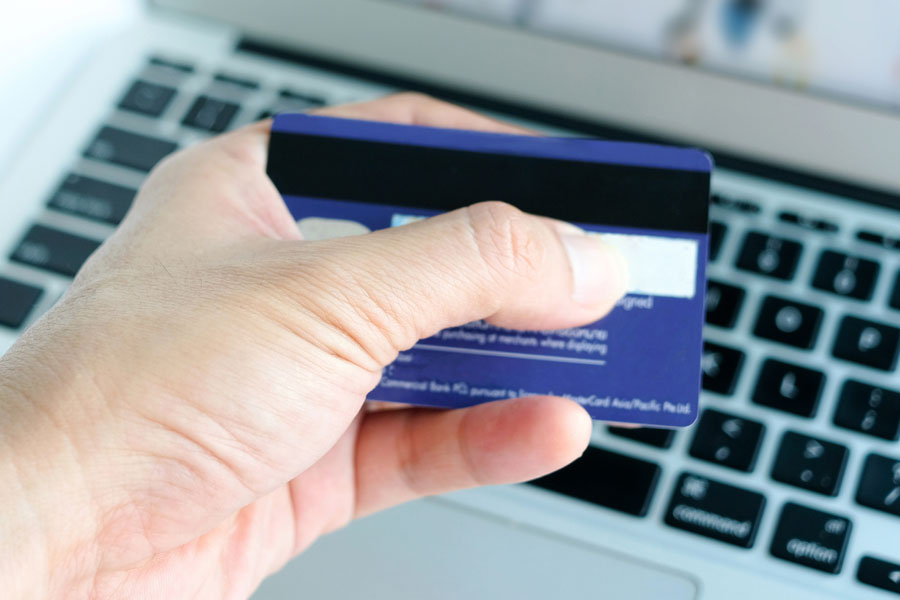Fake Job Opportunity for Students is the Latest Gift Card Scam
Gift cards are a popular and convenient way to provide someone a gift, especially during the holiday season. However, gift card scams have become an increasingly popular tactic used by criminals in recent years to steal money from unknowing victims.
The latest gift card scam involves a bad actor posing as a professor of the university. The bad actor is sending emails to students with a supposed job opportunity. The email urges interested individuals to reply by filling out a questionnaire about themselves, in which the students provide personal information such as full name, home address, age, bank name, phone number, social media accounts, and driver’s license. Once the victim responds to the email, the bad actor sends an attachment of a fake check and directs the victim to deposit the check using their mobile phone. The check will then appear in the victim’s bank account as a pending transaction. The bad actor then instructs the victim to purchase hundreds of dollars’ worth of gift cards for “research purposes” and to send the codes on the back of the cards to the bad actor.
Once the victim has purchased gift cards and given the codes away, the scammer can then use the codes to purchase goods or sell the codes online. As soon as the bank determines the check was fraudulent, the pending transaction is canceled and the victim is out the amount spent on gift cards, plus any returned check fees the bank charges.
How to Determine if You Received a Scam Job Offer
- View the email domain in the headers. Most scammers will use a person's real name as the email display name, however upon further inspection, the email domain and reply address is typically from a generic Gmail account. To find out how to view the headers for your email client, view the Header Information page on the ISO website.
- Never provide personal information. The first thing that should send off warning signs is if the email asks for personal details, especially if they ask for information that you’d never put on your CV. This includes asking for your date of birth, bank details or a copy of your passport to prove your ID. This information could be used for fraudulent activity and genuine employers won’t need any of these details until a formal job offer has been made and a contract signed.
- The email provides the job responsibilities, but lacks job qualifications. Scam job offers may give a lot of detail about the role, but very little detail about what they're looking for in a candidate. The more specific the job qualifications; the less likely people are to respond and apply.
- Students, staff, and faculty should use CMU Career Center's Handshake recruiting platform to apply or hire for job and internship opportunities. Staff and faculty are encouraged to utilize the hiring software platform Handshake for On-Campus Employers to ensure that the hiring process safeguards the personal information of students, staff, and faculty while also making the hiring process consistent for each position of employment at Carnegie Mellon University. Students should search and apply for job postings using Handshake for Students.
- Be suspicious of an instant job offer. Most employers will wait until the deadline for applications is closed before continuing with the next steps of the interview/hiring process. Scam job offers will offer you the position immediately upon responding.
- Beware of fake checks being sent through email. Reputable job offers will not send a check through an email and require users to print it out and deposit it into a mobile bank account. Scammers are aware that banks, by law are required to quickly display all deposited funds as pending. It may take the bank a few days to determine the check was fraudulent
What to Do If You Believe You're a Victim of A Gift Card Scam
If you believe you're a victim of a gift card scam you need to report the scam immediately. Call the company that issued the gift card and tell them the gift card was used in a scam. If you act quickly enough, they might be able to recover your money. Be prepared to provide the time of purchase, store of purchase, and amount of purchase to the gift card company. You should also alert the Information Security Office of the incident at iso-ir@andrew.cmu.edu or call 412-268-2044.
Remember, treat gift cards like cash and never provide the numbers on the back of a gift card to anyone. View the side bar for a detailed list of gift card company's contact information and guidance on gift card scams.
